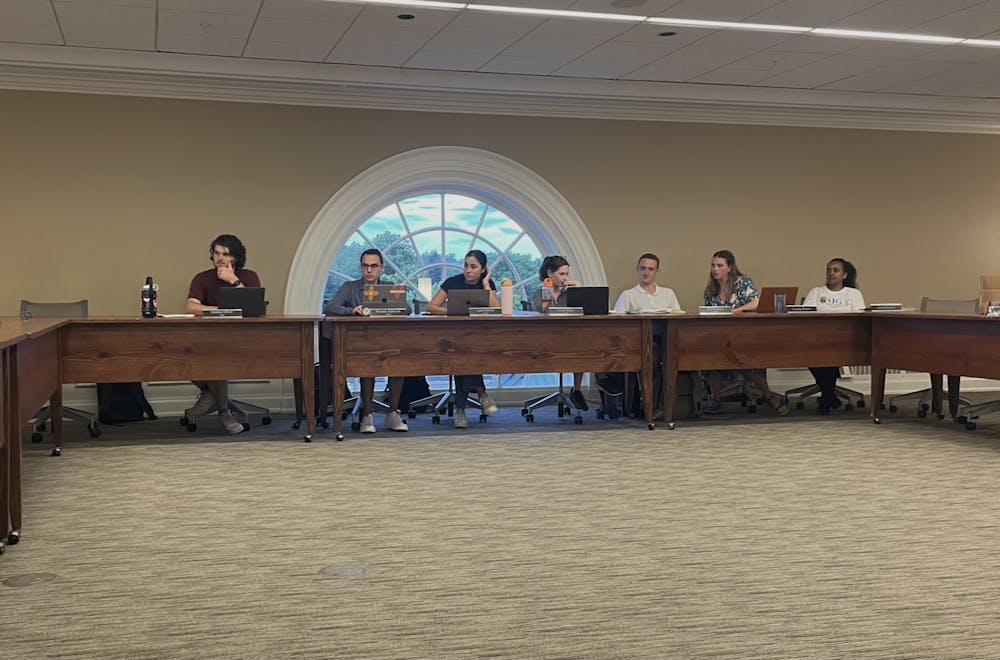The Honor Committee held its first meeting of the Fall 2024 semester Sunday to formally introduce the new appeal investigator position and outline its responsibilities, after voting to create the role at their last meeting. The Committee also considered changing its current vacancy policy, which outlines the procedure for handling situations where — due to other commitments or conflicts of interest — representatives cannot fill their designated school seats on a panel for guilt or sanctions.
An appeal is a formal request made by a student to review the decision of the Committee, typically due to concerns about the fairness or timeliness of the original proceedings. Under the new policy, an appeal investigator is automatically assigned when a student files an appeal to review the Committee’s decision. Laura Howard, Committee chair and fourth-year College student, announced Lauren French, counsel pool member and fourth-year Commerce student, as this term’s appeal investigator.
With the Committee’s updated appeal policy, the appeal investigator works independently to review the circumstances surrounding an appeal, and presents the evidence to the Appeal Review Panel. The ARP then examines the evidence presented by the appeal investigator and may respond to the appeal by taking various actions, such as dismissing the appeal, modifying sanctions or dismissing honor charges.
The Committee also reviewed the specific responsibilities and procedures for the new appeal investigator role. Alexander Church, vice chair for hearings and third-year Engineering student, said that the appeal investigator will review the appeal brief — the written details and basis for the appeal — and whether proper procedures were followed, but will not have access to confidential case details.
“There have been a couple of conversations on scope of appeal investigation … the practice that we are going with is the circumstances and procedures of deliberations,” Church said.
Another point of action for the Committee was reviewing its current vacancy policy — the procedure for when all representative seats from the accused student’s school are vacant. A vacancy can occur either due to a representative being physically absent or unable to attend meetings for a period of time, or because of a conflict of interest, such as when a representative knows the accused student.
In a panel for guilt, the panel must consist of five randomly selected Committee representatives and seven student panelists, including at least one representative and two panelists from the accused student's school. In a panel for sanctions, the panel is made up of five Committee representatives, with one representative required to be from the accused student's school.
The current vacancy policy states that the chair and the vice chair for hearings will coordinate with a given school’s administration to appoint a temporary representative to serve on the panels.
Howard said the Committee should have a more regulated process for filling vacancies and she asked the Committee for any suggestions or opinions on the current policy.
“We need some sort of process for appointing [a] representative to serve in a temporary capacity,” Howard said. “I’m curious if people think that [the current process] works.”
Will Hancock, vice chair for undergraduate community and third-year College student, said he was concerned about the feasibility of the current policy, due to the fact that pulling representatives from certain schools to serve on panels involves training people not usually involved with Honor on case proceedings and details.
Hancock said using a dedicated group of trained representatives — rather than appointing random students on a case-by-case basis — could improve the effectiveness of handling vacancies.
“I don't know the feasibility of working with a [school’s] council for each [case],” Hancock said. “I think it makes sense to actually invest in them being trained to be a representative.”
Church said that the current bylaws still need to be revised, as they do not address instances where the selected vacancy representatives fail to show up to a hearing. Church said that currently, if designated representatives are absent for a hearing, there is no solution in the existing bylaws, so the hearing must be rescheduled.
“If two law students that are staffed [for a vacancy] … don't show up that day, the hearing will be nullified and rescheduled,” Church said. “There’s no way to work around that right now.”
The meeting then entered closed session at 7:41 p.m., with plans to reconvene on Sunday at 7:00 p.m.







